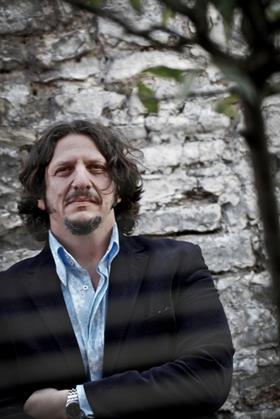
Jay Rayner was out at Fruit Logistica in Berlin filming for BBC's The One Show.
How was Fruit Logistica for you?
Jay Rayner: The show was absolutely vast, and I don’t think you can really get a sense of the economic importance of fruit and vegetable agriculture to nation states until you’ve walked through those halls. What is most striking is the number of governments and regional areas that sponsor stands. Basically we are right in the heartland of what is, for quite a few countries, a key hard currency export business.
It’s been fascinating to see the Chinese come to the fore in a very serious way. The Chinese are a major, major presence, as much as buyers as anything else. The talk across the show was how they are branching out to buy. And if there ever was a mark of an emerging market with a hungry middle class, it’s that. In Berlin, the Chinese were out in force.
What fresh produce innovation did you come across?
JR: I tasted some lovely stuff. I rather liked the mini mango, it’s fantastic. It looks like a plum and it doesn’t have the full-on mango taste, though I suspect that will come as it ripens. I was introduced to the famed acacha, which almost tastes like sorbet. Apparently it’s from Bolivia, cultivated in Australia and M&S are flogging it like mad. I was told it is an appetite suppressant as well so for someone of my build it might be quite a good idea.
How do we get people eating more fruit and veg?
JR:You go back to all the old verities of education. The School Food Plan really has made something of a difference. But it’s a long-term issue.
Actually the real issue is, it’s all very glossy and shiny at Fruit Logistica, and that doesn’t necessarily reflect how hard a time farmers in Britain have had, who are still dealing with the might of the supermarkets. We have to be prepared to pay a little more for our food, because our British farmers need to be able to invest. And if we don’t do that then basically the Chinese are going to steal our entire market, and we’ll be left with nothing.
Whose responsibility is it to get the message about food security over to the public?
JR:There is some very sophisticated marketing at a show of this size, but it doesn’t tell you the whole story. It doesn’t speak to the worries about food security on a global scale. The government has a role. There are a few stands now looking at sustainability options and carbon reduction, and that will only become bigger.
Jay Rayner is a regular food critic for the Guardian and Observer newspapers and is the food presenter for BBC’s The One Show. His latest book, The Oyster House Siege, is a hostage story set in a restaurant and reportedly fuses comedy and recipes. Tasty.



